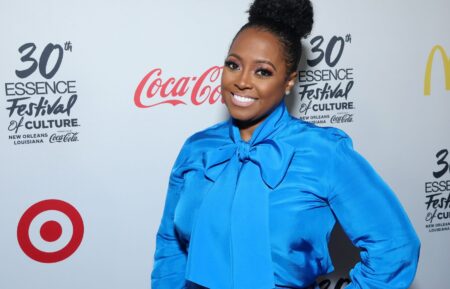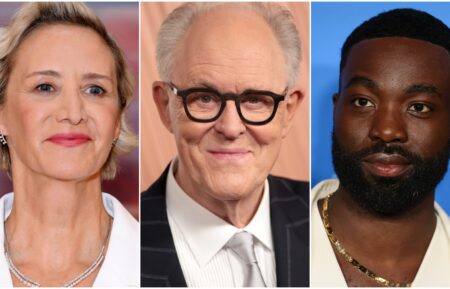How Networks Are Faring Without Live Sports on TV

The coronavirus crisis has affected programming all around the proverbial television dial, but without live sports to cover, sports networks are really feeling the pinch. Broadcast networks can just sub in scripted content in lieu of sports coverage—like Fox, which recently aired the movie Whiskey Tango Foxtrot instead of a planned Major League Soccer match—but channels dedicated to sports aren’t so lucky.
ESPN, the best-known sports channel in the U.S., is already getting creative. In addition to covering ongoing sports news, including the effects of coronavirus on the sporting world, the Disney-backed channel is “looking ahead to entertain fans through fun, compelling archival content and/or themed and stunt event programming that will provide a diversion at a time that there are virtually no other live sports to watch,” as Burke Magnus, ESPN’s executive vice president of programming acquisitions and scheduling, told ESPNFrontRow.
Showing reruns of classic games and other “fun, compelling archival content,” however, isn’t as easy as popping in a VHS tape at the ESPN control room. “Re-airing full-game presentations is not a right that we or other media companies typically have at our disposal at all times,” said Magnus. “Each one of these circumstances requires individual conversations with the specific league or property to determine what’s possible.”
(The New York Post’s Phil Mushnick, for one, appreciates these vintage telecasts for providing “the best, uncluttered, full-screen views of the games. No scrolling ads and repetitive info, no corners filled with stats and other distractions designed to be fully considered by morons. Just the games.”)
Luckily, ESPN has a vast library of sports documentaries ready to be rebroadcast, including its hit 30 for 30 film series. Plus, the channel moved up the premiere of its highly anticipated Michael Jordan docuseries, The Last Dance, which will now premiere this month instead of June.
ESPN is also relying on realistic video games like NBA 2K, a popular basketball sim series published by 2K Sports. On April 3, the flagship channel and its ESPN2 offshoot debuted the NBA 2K Players Tournament—perhaps following the lead of regional channel NBC Sports Washington, which pitted the Washington Wizards against the Milwaukee Bucks against each other in a televised NBA 2K game on March 21, when the two teams were scheduled to compete in person.
Video games have also resurrected the NASCAR season. In March, Fox used the iRacing video game platform to air a series of eNASCAR iRacing Pro Invitational events—with real-life drivers Dale Earnhardt Jr., Kyle Busch, Jimmie Johnson Denny Hamlin, and others competing on virtual versions of Homestead-Miami Speedway and Texas Motor Speedway last month. The first two broadcasts drew an average of 1 million viewers.
“There’s a lot of things that made NASCAR and iRacing a perfect candidate for this,” Brad Zager, Fox Sports executive vice president and head of production, told the Los Angeles Times. “It’s a simulator rather than just any other eSport. You’re not just hitting a joystick … These drivers have rigs and it really feels like racing. They’ve got to deal with shifting and the issues in the track they normally would deal with.”
But other live sports events can’t be recreated with digital avatars—the Olympic Games, for instance. In March, Japan Prime Minister Shinzo Abe and International Olympic Committee president Thomas Bach agreed to postpone the Tokyo 2020 Olympics, originally scheduled to begin in July, until 2021.
Comcast, which had the rights to air this year’s Olympic Games on NBC and its other platforms, won’t take a huge loss, per CEO Brian Roberts. “We try to anticipate for big events what might happen so that we’re protected there, and we also have insurance for any expenses we make. So there should be no losses should there not be an Olympics,” Roberts said earlier in March, per Variety. But the company also won’t be able to piggyback the launch of NBCUniversal’s streaming platform, Peacock, on Olympics coverage.
Now media analysts are looking farther ahead—to the start of the football season, for example. Football games gave TV networks nearly $5 billion in advertising revenue during the 2019 NFL season, but there are no guarantees the 2020 NFL season will start on time—or, frankly, at all.
“I would say [that starting the season on time is] everyone’s hope, that we are in a position to do that,” Dr. Allan Sills, the NFL’s chief medical officer, said earlier this month, per CBS Sports. “But the reality is none of us know those facts for certain right now.”
From TV Guide Magazine
How Hulu's 'Mid-Century Modern' Is a 'Golden Girls' for Our Times
Settle in for some older and bolder laughs with the BFFs of a certain age in the new comedy starring Nathan Lane, Matt Bomer, and Nathan Lee Graham. Read the story now on TV Insider.










